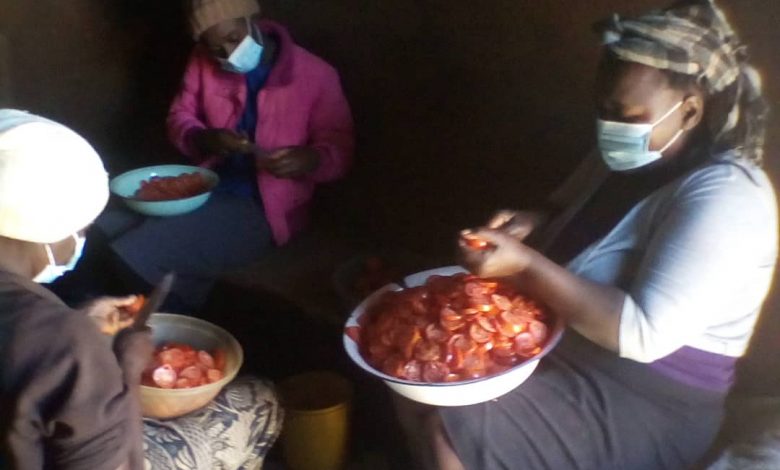
By Paul Mzizi
Zamazama club, a women’s farming group is tackling poverty in Gwanda South area through farming.
The group, planted 2000 tomatoe plants in March this year and are currently supplying tomatoes in their Selonga and Gwanda areas, earning an income for their families.
Club chairperson, Sikhumbuzo Moyo, told CITE that the group harvests ten crates of tomatoes per week and supplies the local market.
She said owing to lack of means of transport to take their supplies to Gwanda town, they now supply the local market as well as Ntepe area.
“There are a number of vendors in the Ntepe area we supply with our products,” she said.
Moyo said Zamazama Club was tackling poverty in the rural area headlong in this Covid 19 era.
The group is a member of the non-governmental organisation, Self Help Foundation of Zimbabwe.
After undergoing training through the organisation last year, the club expanded their garden to a full hectare of land.
“Due to the Covid 19 induced lockdown, we have trained our members that include Zamazama Club on value addition as part of activities to sustain livelihoods during and post Covid 19. They are now engaged in tomatoe processing, whereby they process excess and undergrade tomatoes into tomatoe soup powder,” said Emmanuel Noko, the organisation’s Gwanda district co-ordinator.
“This is also another way of conserving tomatoes to reduce losses tgat can be incurred fue to a market shrinkage because of the lockdown,” he said.
Noko said clubs such as Zamazama that had been formed in the rural areas, were of immense help to rural dwellers as they now had a source of livelihood.
“Because Matabeleland region usually has average rain, we encourage farmers to take up alternative methods such as setting up of vegetable gardens and run these projects throughout the year. Previously, rural farmers did this as a seasonal venture but we encourage them to make it an all-year occupation, which will in the end, drastically reduce poverty in their areas and improve livelihoods,” he said.
Most rural dwellers now rely on vending vegetables and tomatoes in Zimbabwe as the country faces an economic crisis with unemployment rate projected to be at 90 per cent.






